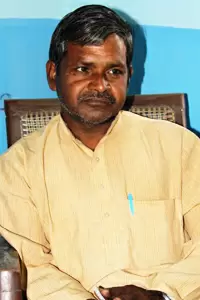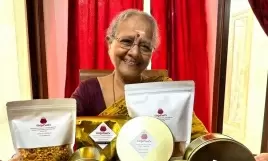So what if he is a rickshaw puller, Rehman Ali is a popular poet

04-February-2011
Vol 2 | Issue 5
When Rehman Ali wrote a poem for the first time, it was an instant hit at home and at his rickshaw stand in Kanpur. Yes, as a rickshaw puller he could recite his maiden work - ‘Tera Pyar Dil Mein Fir Se Machal Raha Hai, (I am falling in love with you) - only at home and at the stand. But he never stopped writing and also reciting, which, over the years, helped him not just getting more and more admirers, but also in publishing 11 books. His eleventh book, a compilation of his poems, was released at a function in Kanpur in December.
Hailing from Badeban village in Basti district of Uttar Pradesh, about 300 km from Kanpur, Rehman was born in a family of a small farmer. After completing his high school in 1974, he migrated to Kanpur in search of employment, as his family’s economic condition was not very good. He worked in Regal Cinema as a labourer and simultaneously continued his studies. Though he completed his Intermediate in 1976, he could not study further.
 |
|
Rickshaw poet: A poet is a poet, wherever he is, whatever he is. Rehman Ali has written poems on topics like love, nature, and communal harmony while pulling a rickshaw for a living.
|
Recalling his days as a worker in Regal Cinema, he says that he used watch the films playing there through a hole. After working for a year, he bought his own rickshaw. But life continued to be a struggle, though many people were interested in listening to his poetry recitals.
One day, when he was standing beneath a tree, waiting for passengers, a middle-aged man hired the rickshaw. En route, Rehman recited some verses, much to the surprise of the passenger, who was Badri Narayan Tewari, convener of Manas Sangam, an organisation involved in the promotion of Hindi literature in Kanpur.
The rest is history and the first book “Kuch Kavitayen” (Some Poems) was published in 2005 with the Sangam’s help. Tewari continued his support for Rehman, who is today a well known local poet. Former President Dr APJ Abdul Kalam even sent him a letter of appreciation after reading his poems.
But the father of six - three daughters have been married off and three sons work as labourers – works very hard and earns Rs 150 to Rs 200 a day. His wife, who has studied up to the fifth standard, has always supported the poet, who started writing songs on love initially, but later started covering topics like nature, national integration, communal harmony, water woes, and corruption. He still writes as he waits for customers.
















